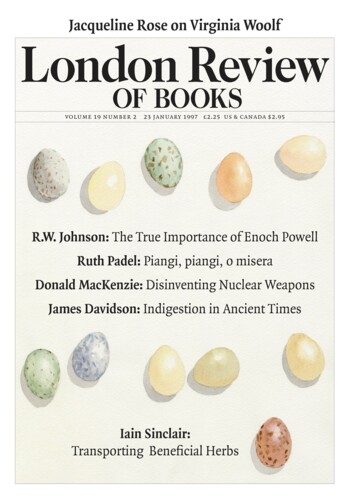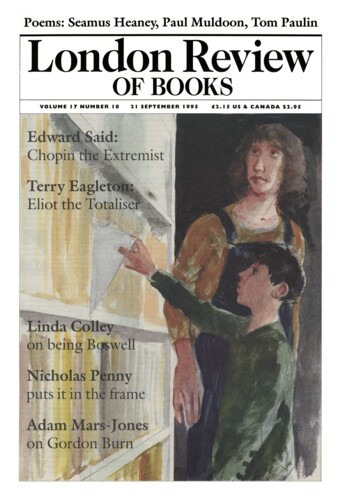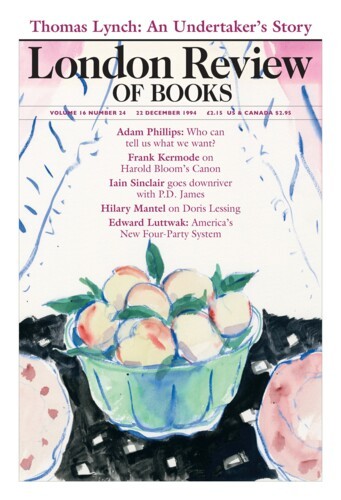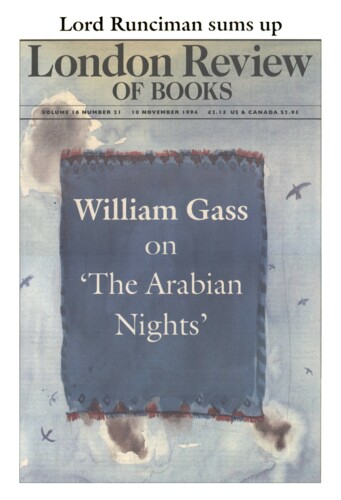Holborn at Heart
Jonathan Parry, 23 January 1997
Fifty or sixty years ago, there were many people for whom Gladstone still mattered. This can hardly be said today. He has become more and more marginal to our preoccupations, partly because those preoccupations have changed, and partly because historical work on him has made him appear more remote: more churchy, more Victorian than the Victorians. This marginalisation has been much less noticeable in the case of Disraeli, who in death has proved even more flexible than in life. Despite his superficially enigmatic and exotic air, he seems much the happier of the two to be reclothed in the fashions of the day.





